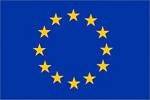EU Energy Chief Heads to Moscow to Discuss Energy Security
The European Commission backs Bulgaria's plans to build a gas hub to help it compensate for the loss of Russia's South Stream pipeline, and will raise the issue at talks in Moscow on energy security on Wednesday, the EU's energy boss said.
Gazprom's announcement in December that it was scrapping the South Stream project to pump natural gas to the European Union was a particular blow to Bulgaria, which relies heavily on Russian gas.
Bulgaria would have been one of the nations through which the pipeline passed as Russia sought to sidestep Ukraine, its traditional gas shipment route to the European Union.
After talks in Brussels with Bulgarian Prime Minister Boiko Borisov, Commission Vice President Maros Sefcovic announced the creation of a high-level group on energy cooperation in southeastern Europe. The group is expected to hold a first meeting in Sofia in February.
The aim is to improve Bulgarian connections with other EU countries to "prevent any outside pressure", he said.
Sefcovic said the Commission supported Bulgaria's ambition to become a regional gas hub provided it complied with EU regulatory law, whose requirements were one of the reasons Moscow cited for ditching its South Stream project.
Borisov said he counted on Sefcovic to raise all the issues concerning Bulgaria in Moscow.
Sefcovic has promised to call him from the airport to relay "the general sentiment" and also the details of the Moscow talks, Borisov told a joint news conference.
South Stream has divided Europe as the Commission, the EU executive, objected on the grounds it breached EU law, while some member states supported the project as the best way to secure their own gas supplies and economic interests.
The Commission is working on proposals for a more closely-knit energy union, based on connections between EU nations to share available energy and reduce reliance on Russia, which supplies around one third of EU energy needs.
Russia cut off gas to Ukraine in June last year following a dispute over prices, raising concerns of knock-on disruption to EU nations, especially those such as Bulgaria that are heavily dependent on Russian gas.
Last October, the Commission negotiated a temporary deal with Kiev and Moscow to ensure Ukraine's gas was delivered, but that only lasts until the end of March.
Wednesday's talks will raise the issue of a follow-up deal, EU officials said.
Reporting by Barbara Lewis in Brussels and; Tsevetelia Tsolova in Bulgaria






